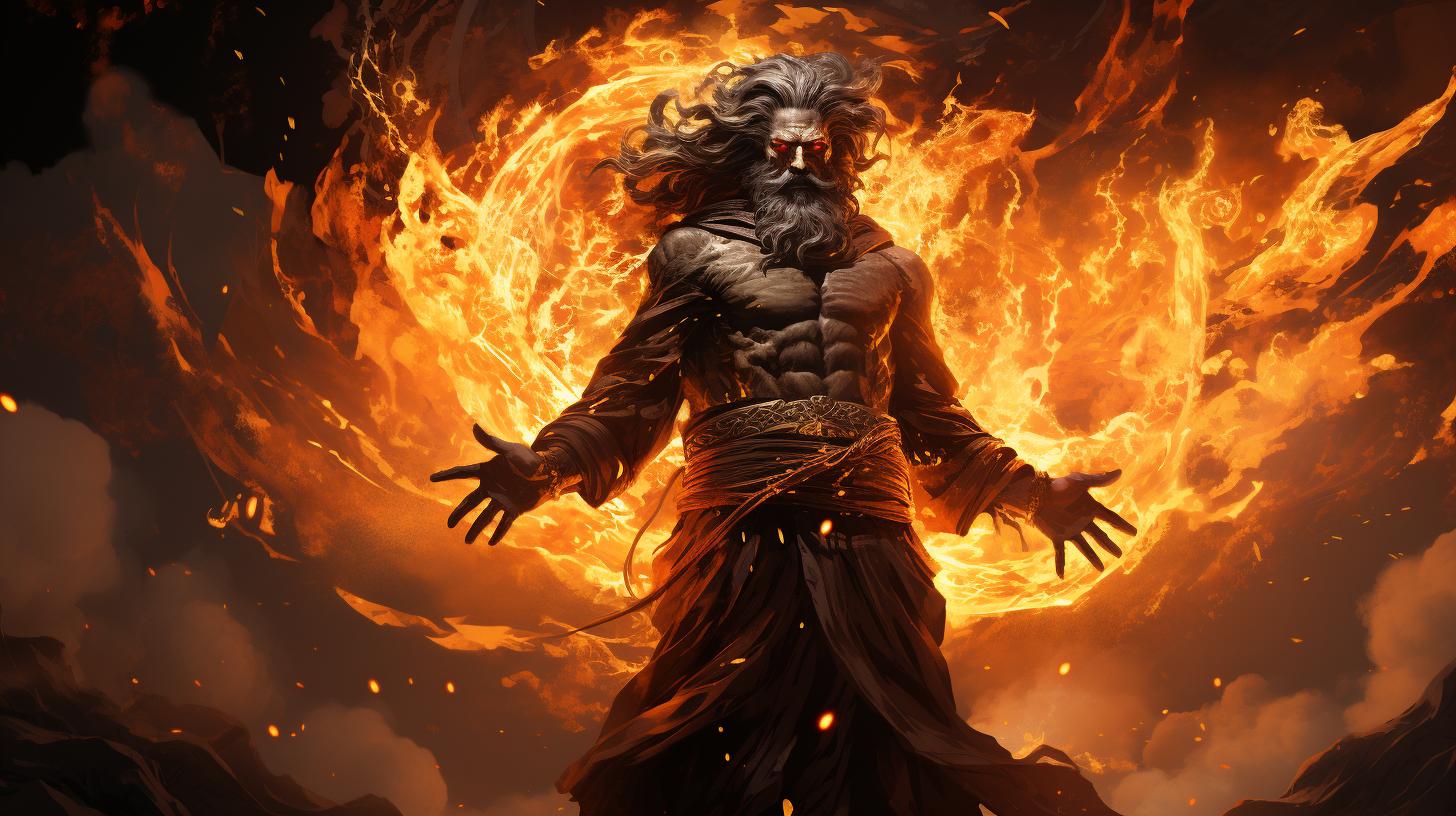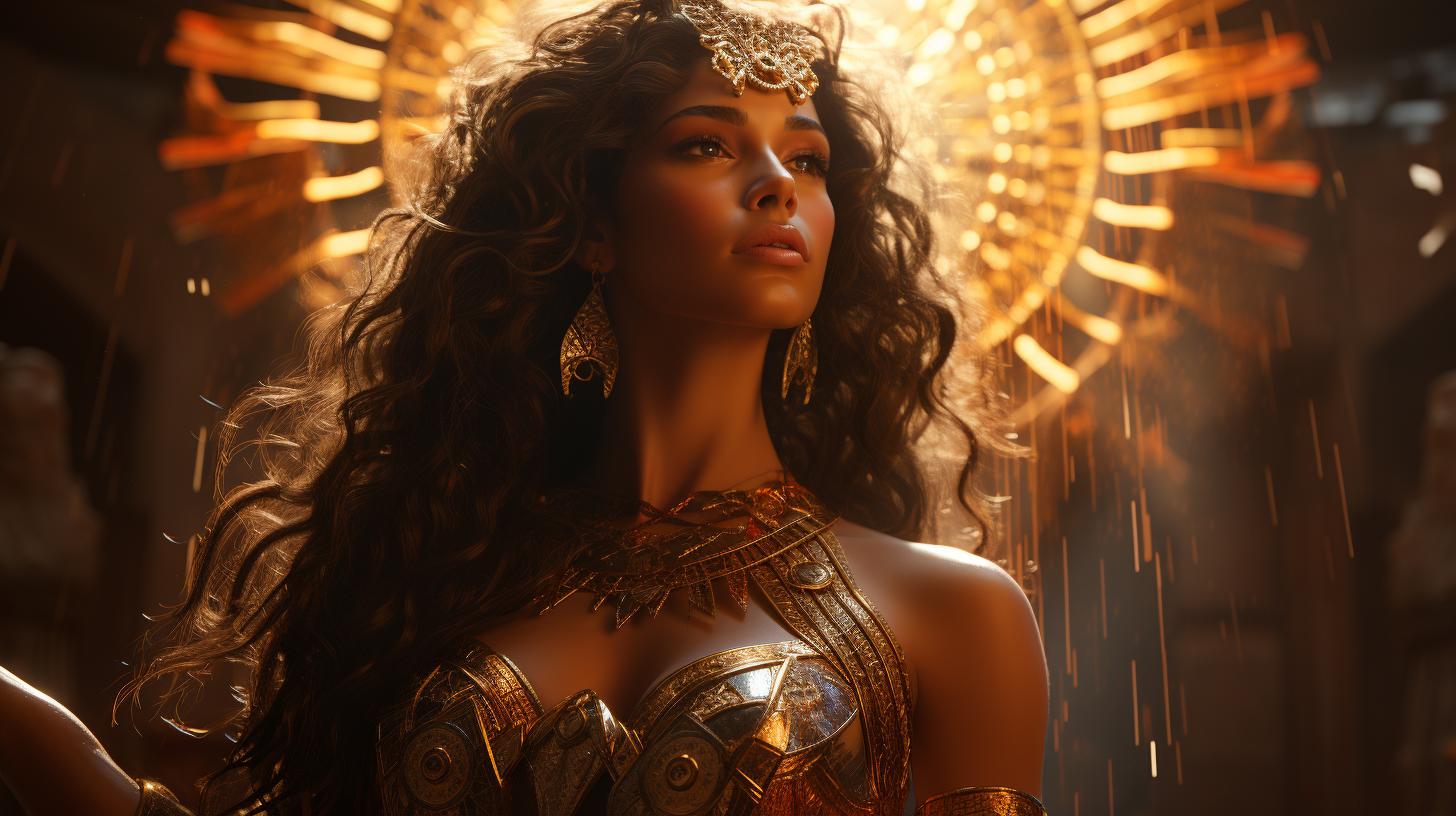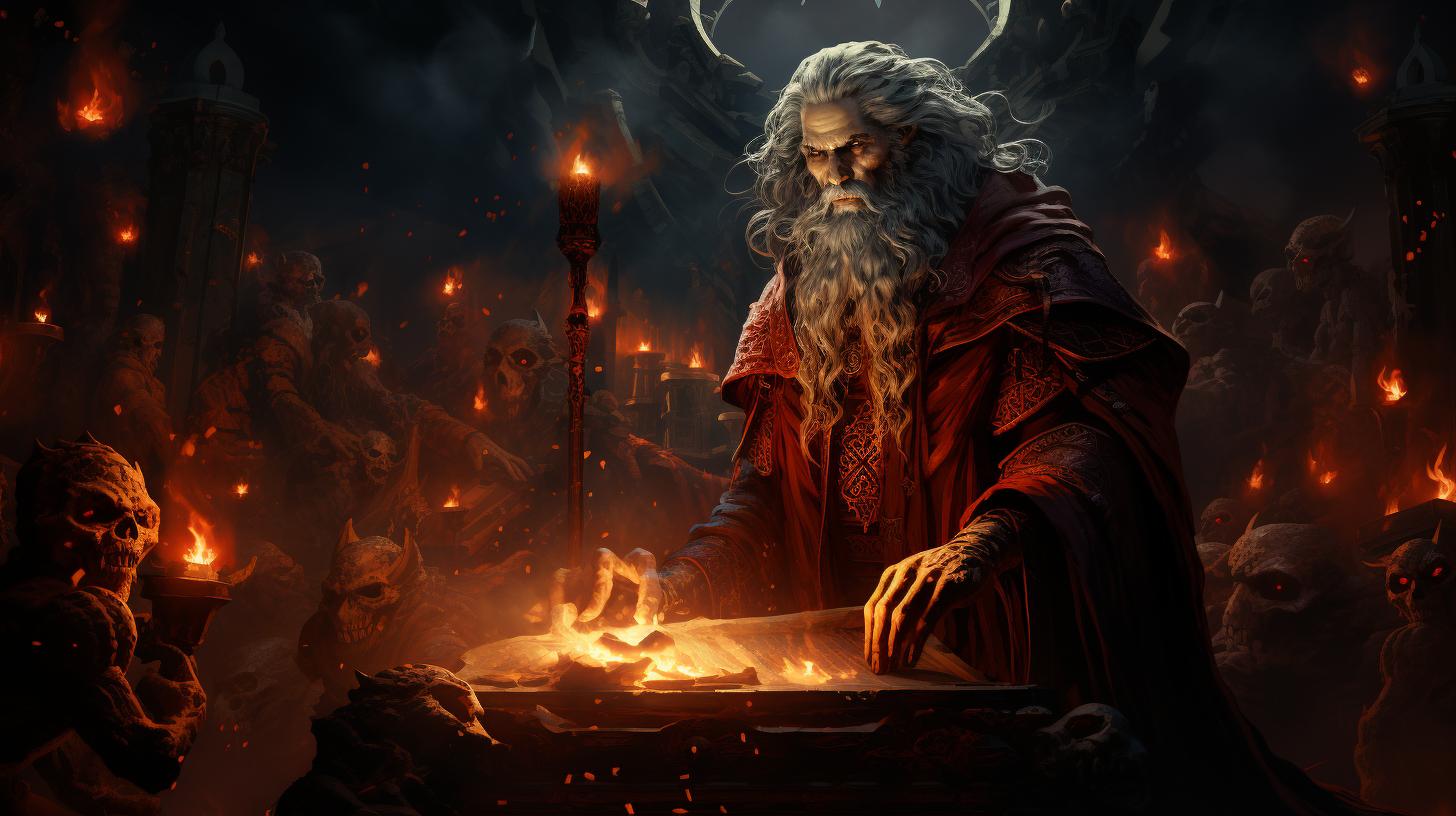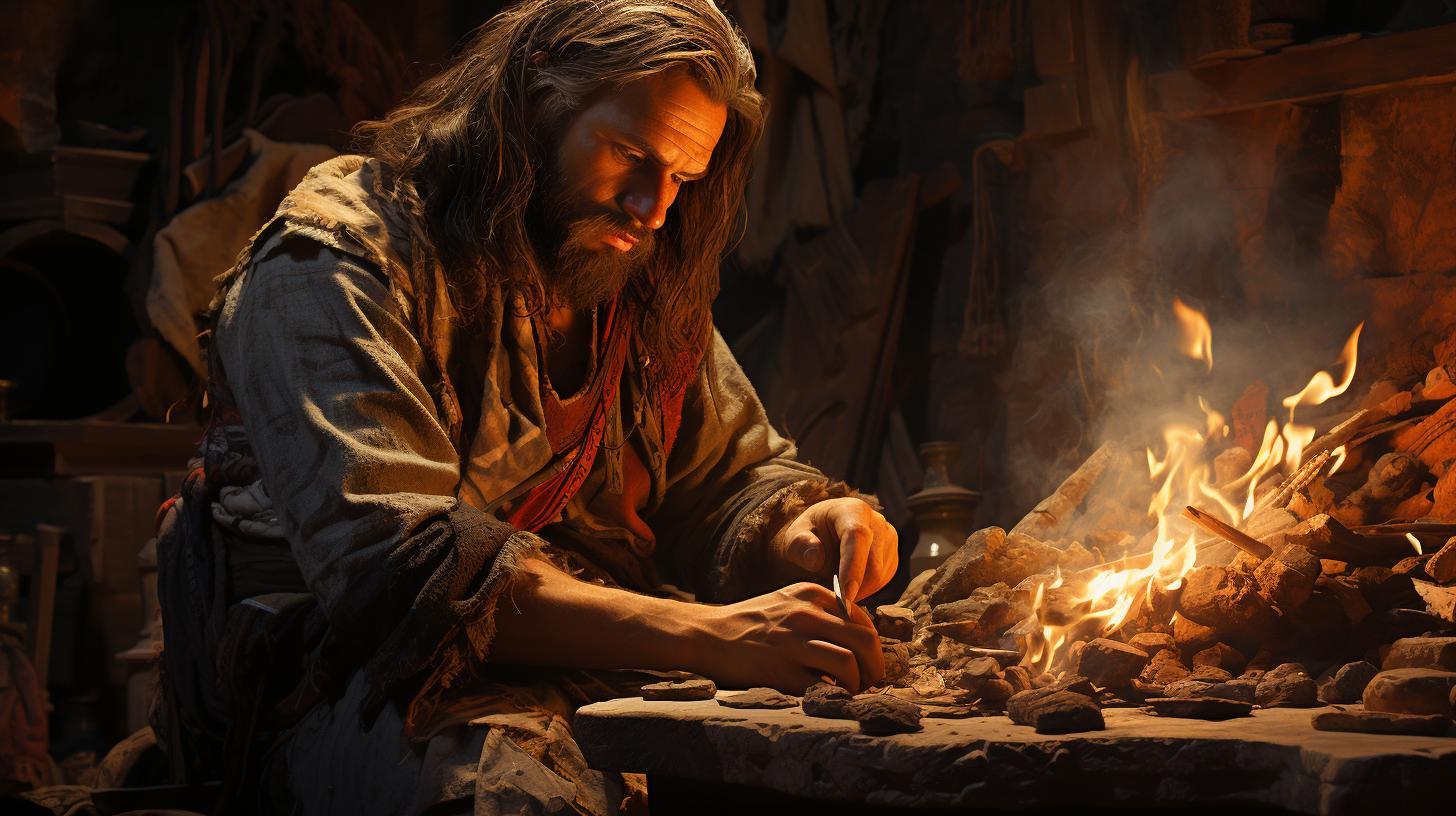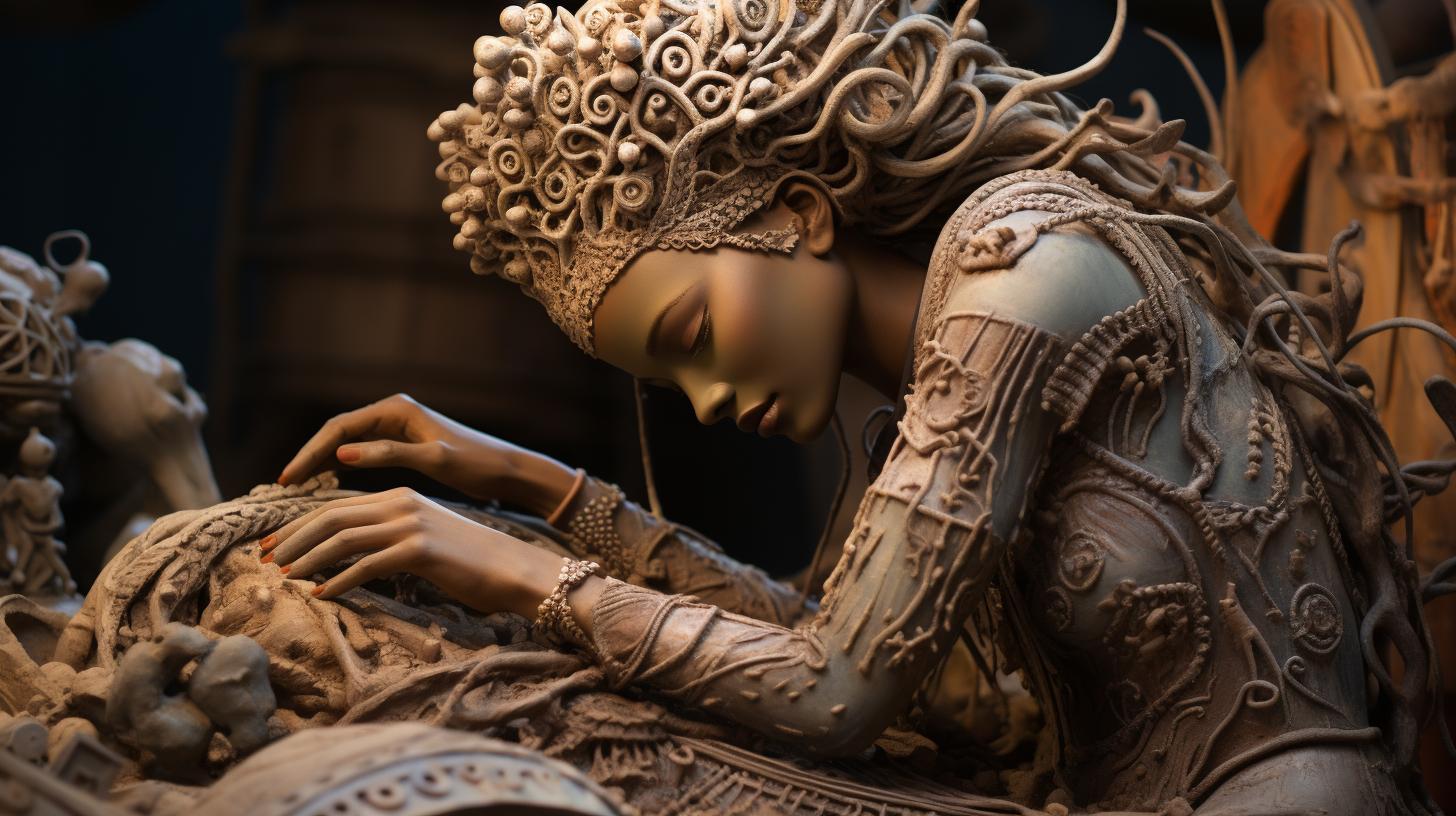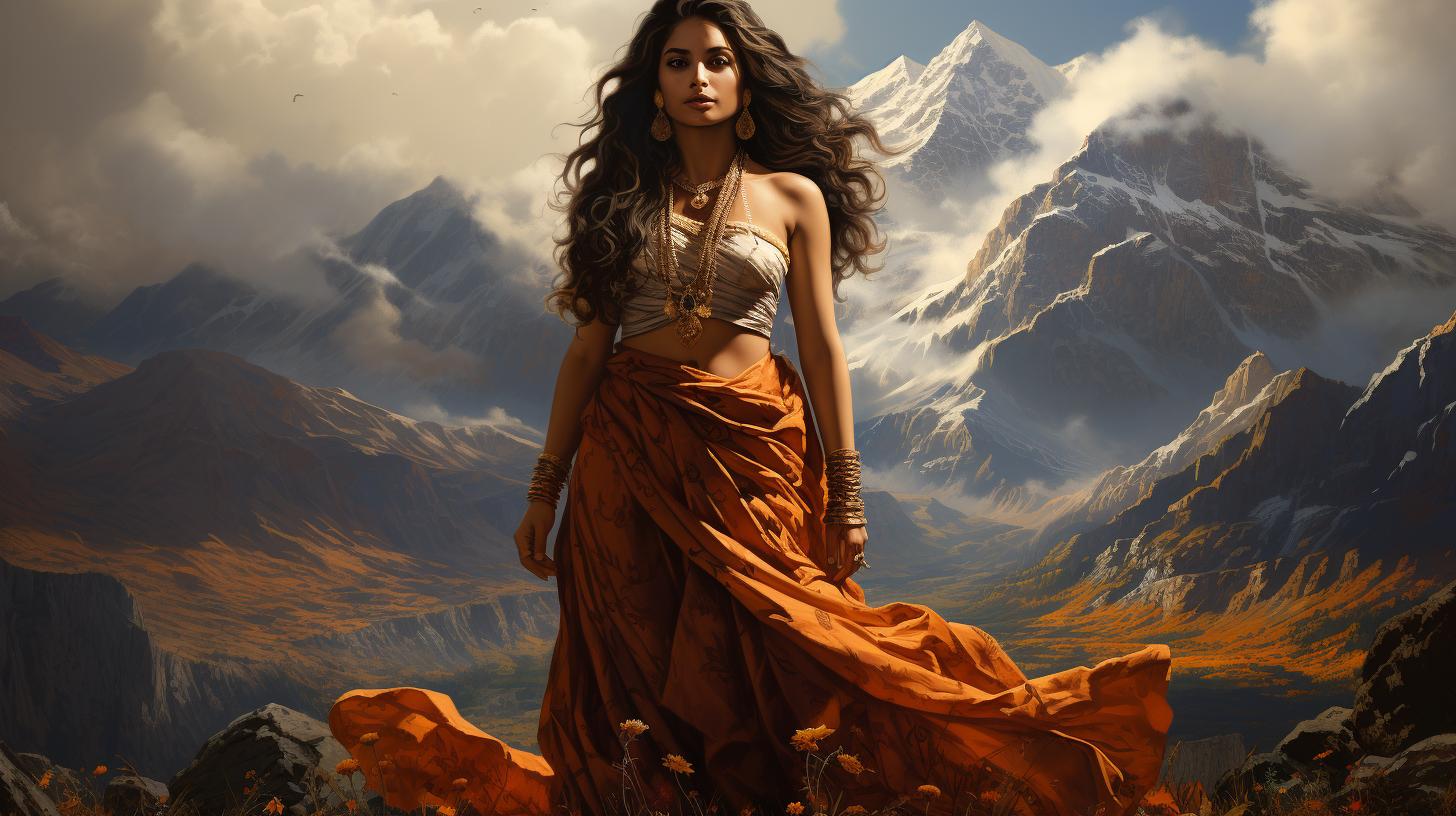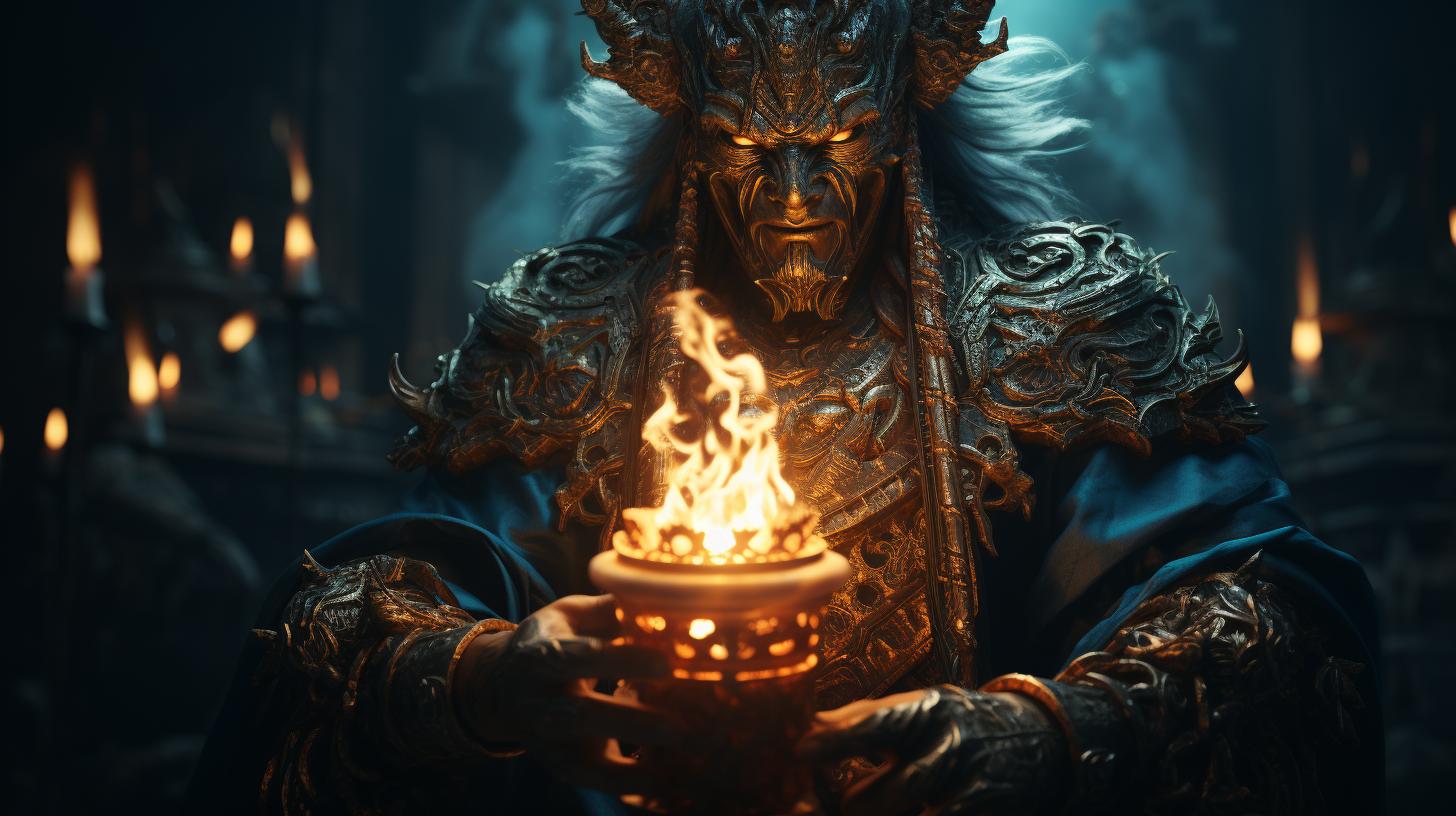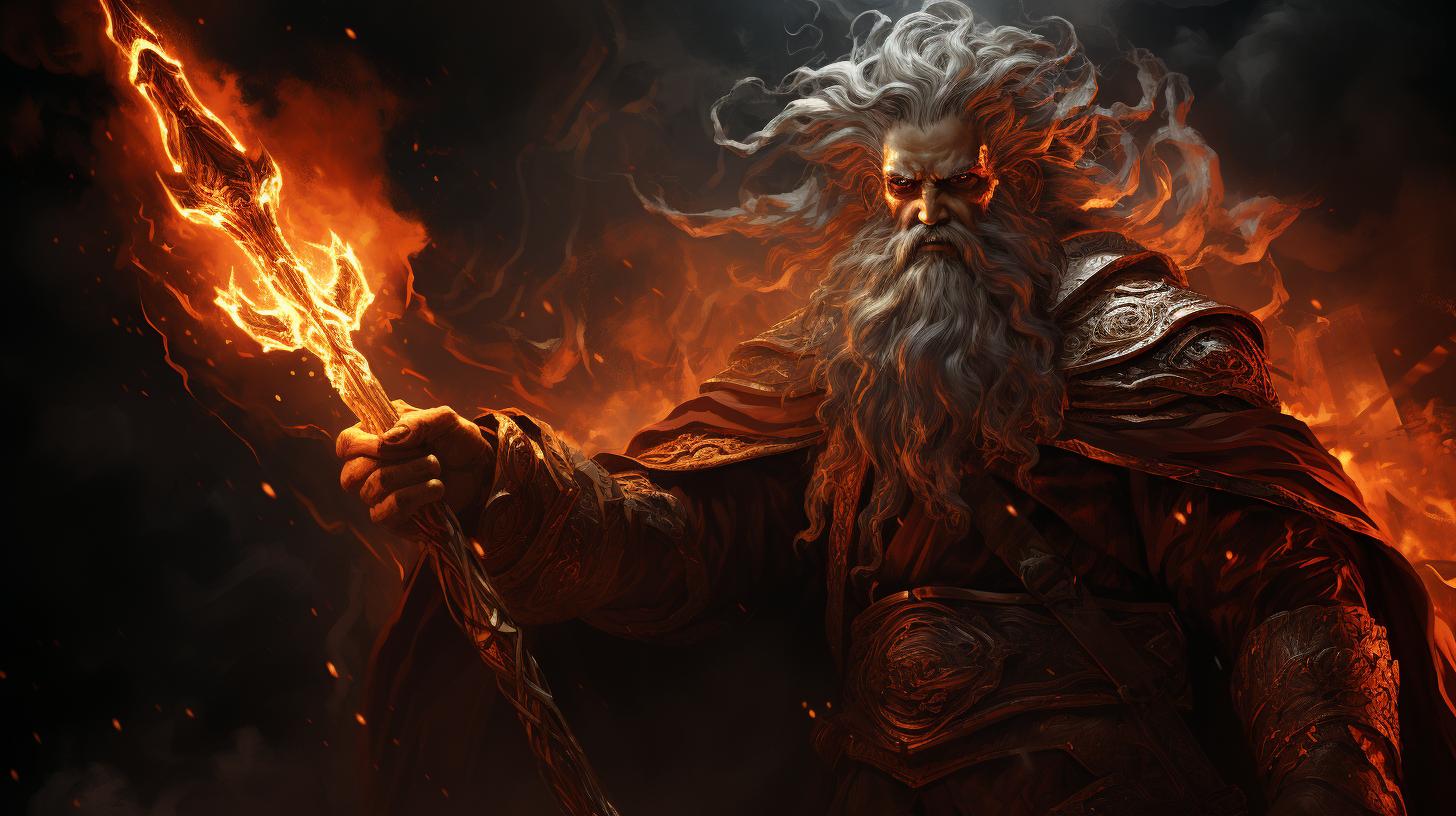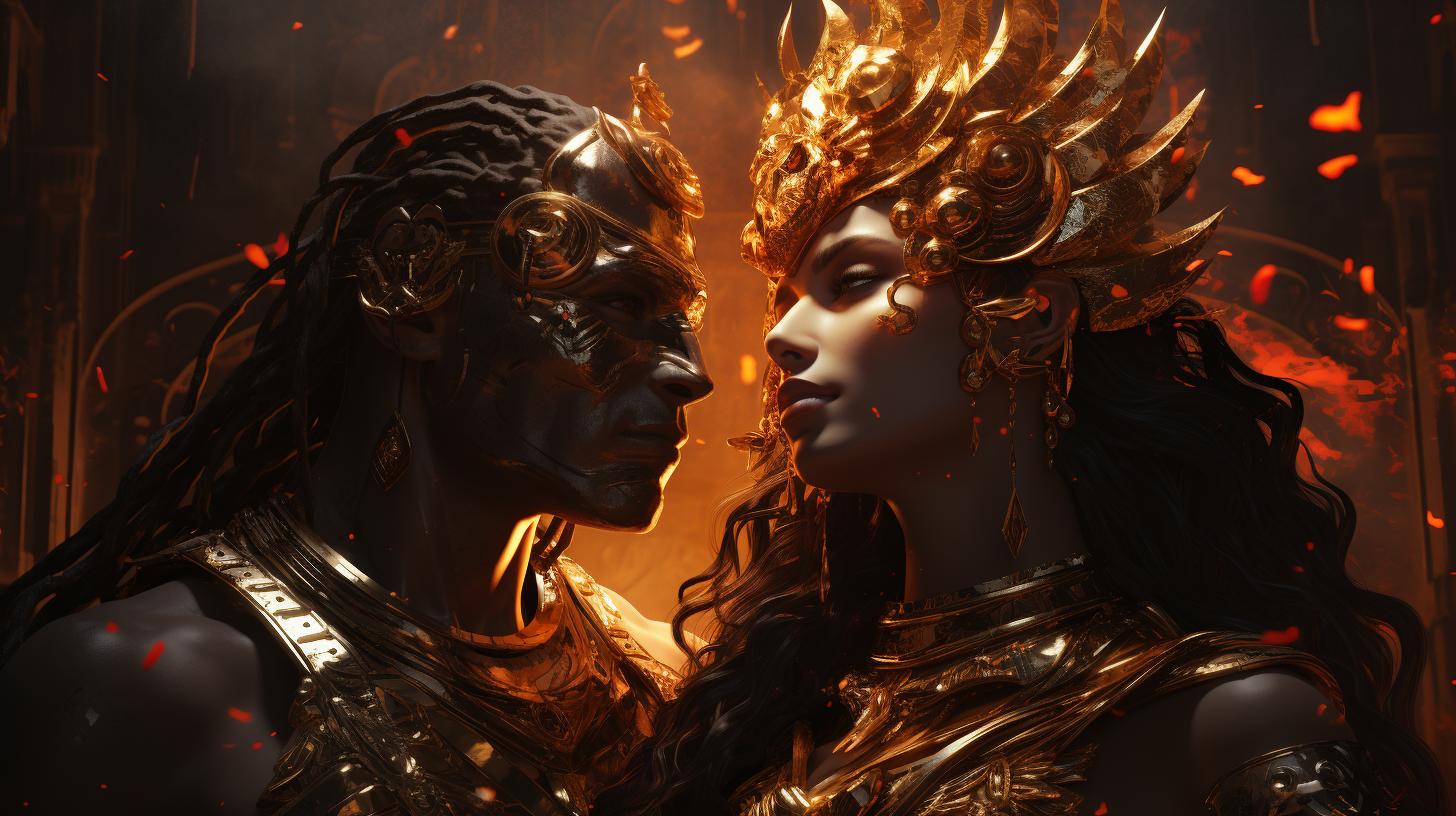The Role of Ishum God: Mesopotamian Deity and Protector of Homes
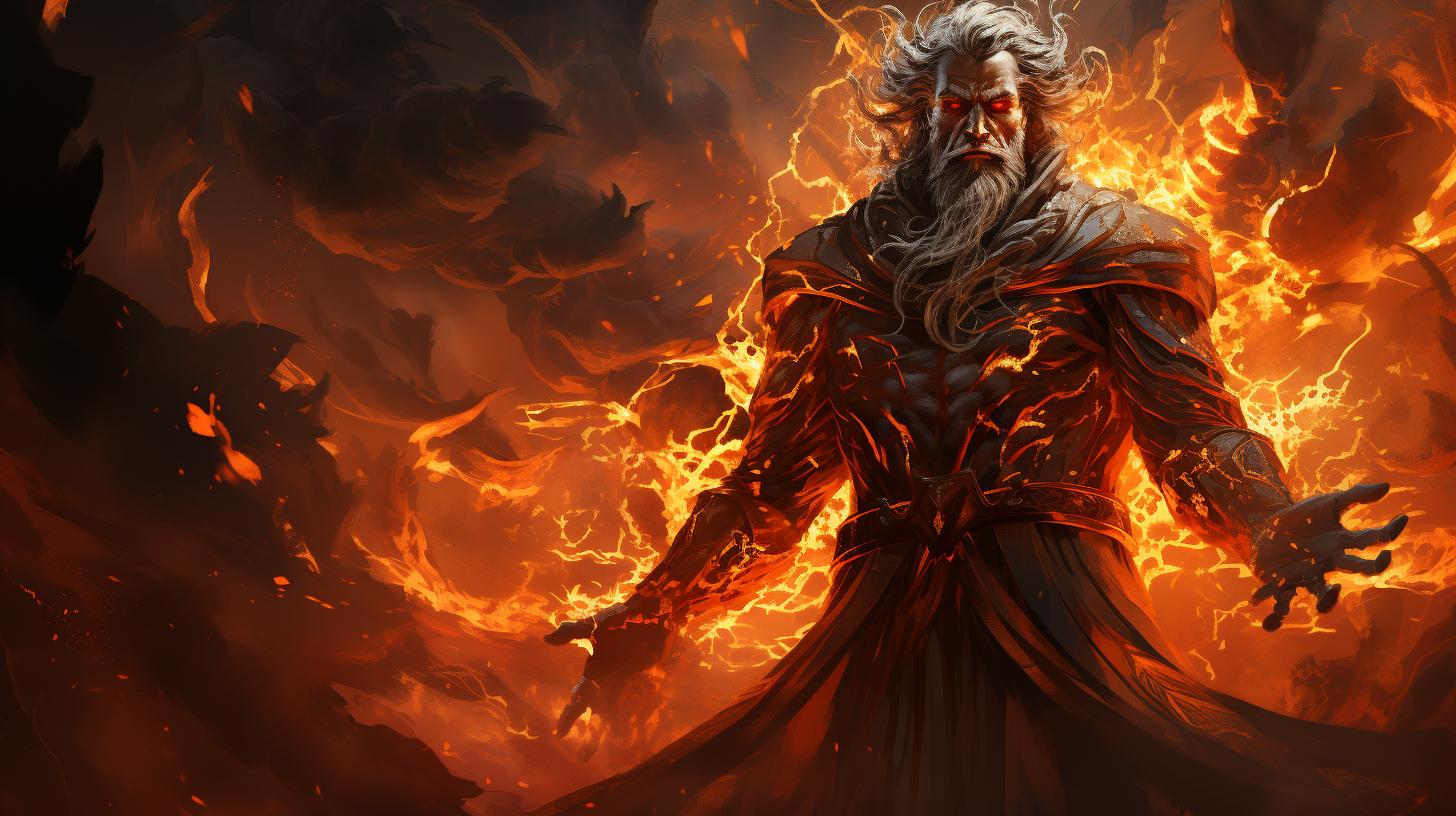
Ishum god, an ancient Mesopotamian deity of Acadian origin, is known as a divine guardian of the night and protector of homes. Associated with underworld deities like Nergal and Shubula, Ishum’s significance extends beyond being solely a god of fire, unlike Gibil. Despite not being among the major gods, Ishum was commonly worshipped and featured in many theophoric names.
Ishum’s notable connection lies with Erra, a warrior god, as they join forces in a soliloquy expressing their desire for battles and campaigns. This article explores Ishum’s associations, worship, Marduk’s intervention, and other related deities and entities, offering limited but intriguing information.
(Note: The word count of the above introduction is 78 words, divided into two paragraphs of less than 40 words each.)
Associations and Relationships with Other Deities
Ishum, the Mesopotamian deity, has intriguing associations and relationships with various other deities. These connections shed light on the complex pantheon of ancient Mesopotamia.
Nergal and Shubula: Deities of the Underworld
One significant association is with Nergal and Shubula, prominent deities of the underworld.
Ishum’s connection to these underworld gods hints at his role as a guardian and protector in the realm of darkness.
Possible Associations with Shamash and Ninlil
There are potential but inconclusive associations between Ishum and Shamash as well as Ishum and Ninlil. While the exact nature of these connections remains unclear, it suggests a possible shared domain or overlapping responsibilities within the divine hierarchy.
Understanding Ishum’s relationships with other deities deepens our comprehension of his role and significance in the ancient Mesopotamian pantheon. These associations reveal the interconnectedness of the gods and demonstrate the complex interplay of divine powers in Mesopotamian mythology.
Ishum’s Importance and Worship
Ishum, the Mesopotamian deity, holds significant importance in the ancient pantheon and was widely worshipped. This section explores the common worship practices associated with Ishum and sheds light on the teophoric names attributed to this divine guardian.
Additionally, we will delve into Ishum’s intriguing connection with Erra and the Terrible Seven, revealing the depth of his divine influence in Mesopotamian culture.
Common Worship and Teophoric Names
Ishum’s adoration and reverence were widespread among the Mesopotamian populace. Despite not being considered one of the principal deities, Ishum held a special place in the hearts of many worshippers.
One notable indicator of his popularity can be seen in the prevalence of teophoric names incorporating his divine essence. These names, bearing reference to Ishum, demonstrate the widespread belief in his protection and the desire for his benevolence to extend to individuals and their homes.
The teophoric names associated with Ishum attest to his role as the divine guardian of houses and his association with the night. They reflect the belief that invoking Ishum’s name would attract his watchful gaze and ensure the safety of one’s dwelling during the darkness.
Ishum’s Connection to Erra and the Terrible Seven
Ishum’s significance is further enhanced through his profound connection with Erra, the warrior god. Erra’s desire for battle and campaigns was fueled by the presence and support of Ishum, who played a crucial role in the Terrible Seven, a group ready to unleash destruction upon the people of Mesopotamia.
The partnership between Ishum and Erra highlights Ishum’s willingness to ignite the flames of conflict and grant Erra the motivation he needed. As Erra’s companion and ally, Ishum’s influence bolstered the power of the Terrible Seven, making them a formidable force to be reckoned with.
Ishum’s connection to Erra not only portrays his influence on the battlefield but also showcases his broader role in maintaining cosmic order. By aligning himself with the forces of destruction, Ishum solidified his place in the intricate web of divine power, ensuring the balance necessary for the proper functioning of the universe.
As we continue our exploration of Ishum’s significance, it is crucial to acknowledge his complex relationship with the warrior god Erra and the pivotal role he played within the Terrible Seven.
Marduk’s Intervention and the Power Struggle
Marduk’s intervention in Ishum’s story reveals a significant power struggle and the consequences that follow. This section examines the desire for battle and campaigns expressed by Erra, the warnings from Marduk, and the temporary usurpation and humiliation that Erra faces.
Erra’s Desire for Battle and Campaigns
Erra, the warrior god and companion of Ishum, yearns for battle and conquest. In his soliloquy, he expresses his eagerness to engage in military campaigns, seeking stimulation and the opportunity to unleash his prowess.
His desires align with the invocations made by the Terrible Seven, who are willing to massacre the people of Mesopotamia. Erra’s restless spirit and thirst for power become a pivotal factor in the power struggle that unfolds.
Marduk’s Warning and the Consequences
Marduk, the principal deity of Babylon, recognizes the potentially catastrophic consequences of Erra’s actions. He interjects, cautioning against the unfolding chaos and destruction that would ensue if Erra were to rise from his abode.
Marduk serves as the voice of reason, urging restraint and reminding Erra of his role as the regulator of heaven and earth. The warning carries weight, as it attests to the delicate balance that must be maintained to avoid disastrous outcomes in the divine realm.
Erra’s Temporary Usurpation and Humiliation
Despite Marduk’s warning, Erra, fueled by ambition and a desire for power, temporarily usurps control. He seizes the opportunity to assert his dominion in the absence of Marduk, attempting to establish his own reign over the heavens and the earth.
However, his momentary triumph is short-lived. In the face of Marduk’s resolute interference, Erra’s hubris is exposed, leading to his eventual humiliation and a return to his rightful place.
Other Deities and Entities Associated with Ishum
As we explore the realm of Ishum, we come across mentions of other deities and entities that are loosely associated with him. While information on these entities is limited, they offer tantalizing hints at the intricate divine network within Mesopotamian mythology.
Dibarrra, Gibil, and Sibi: Mentioned in Passing
In the texts, we encounter fleeting references to three entities: Dibarrra, Gibil, and Sibi. Unfortunately, the details surrounding their specific connections to Ishum remain elusive. It is worth noting, however, that their inclusion in the context of Ishum suggests a potential shared domain or interplay between these entities.
Limited Information and Uncertainty
- While the references provide tantalizing breadcrumbs, the scarcity of information hinders a comprehensive understanding of Dibarrra, Gibil, and Sibi’s roles in relation to Ishum.
- Scholars grapple with the challenge of piecing together the fragmented clues to unlock a deeper comprehension of these entities’ significance within the broader mythological framework.
- Further research and textual analysis may shed light on their respective domains, symbolism, and potential interconnections with Ishum and the divine landscape of Mesopotamia.
As we delve into the multifaceted tapestry of Mesopotamian mythology, it becomes evident that some elements remain cloaked in mystery.
The tantalizing hints of Dibarrra, Gibil, and Sibi’s roles intertwine with the enigmatic nature of Ishum’s associations. Only through continued exploration and scholarly inquiry can we hope to unravel the secrets veiled within these divine connections.
.

